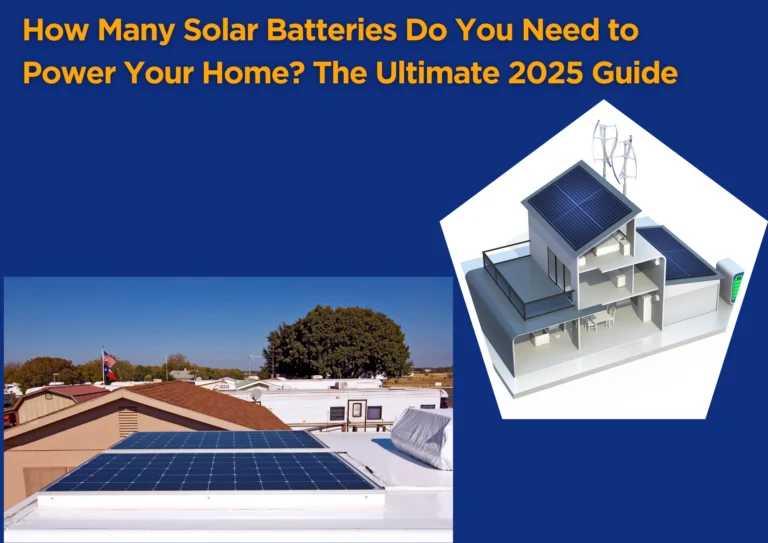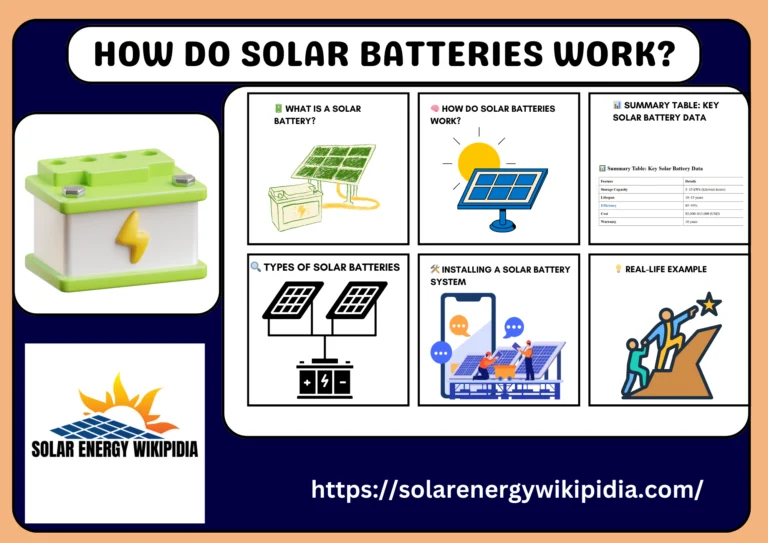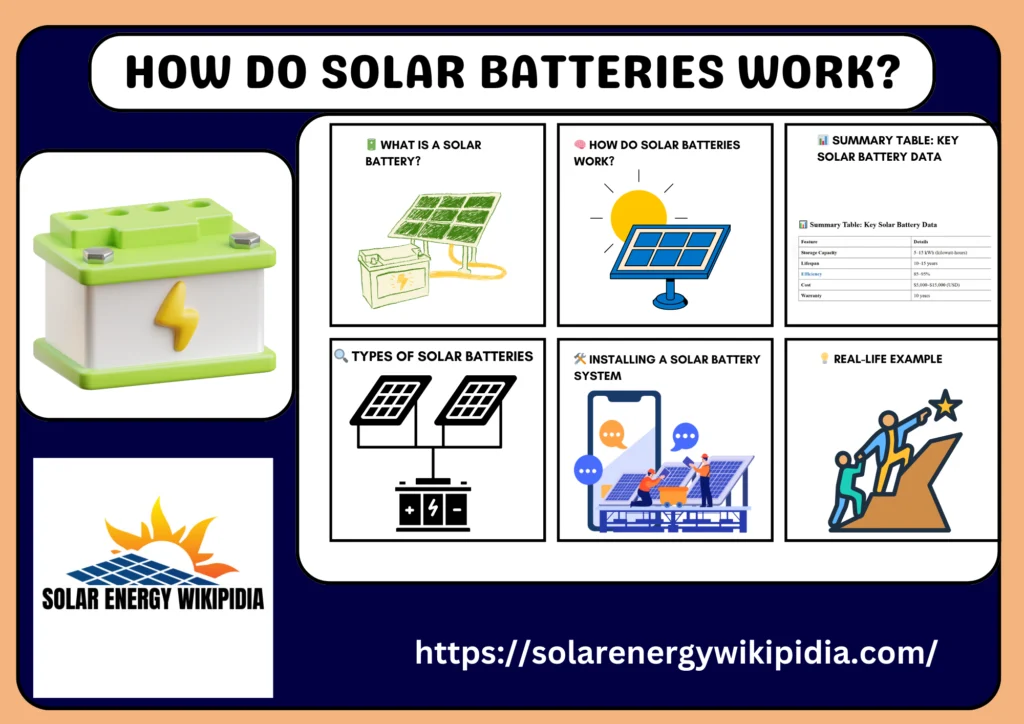
How solar batteries store sunlight for 24/7 power, exploring types, benefits, and installation of these energy-saving systems for your home.
Imagine harnessing the sun’s energy and storing it for later use—like having a pocket-sized sun that powers your home 24/7. That’s the magic of solar batteries. In this guide, we will explore how they function, the different types available, and how they can benefit you.
Table of Contents
🔋 What Is a Solar Battery?
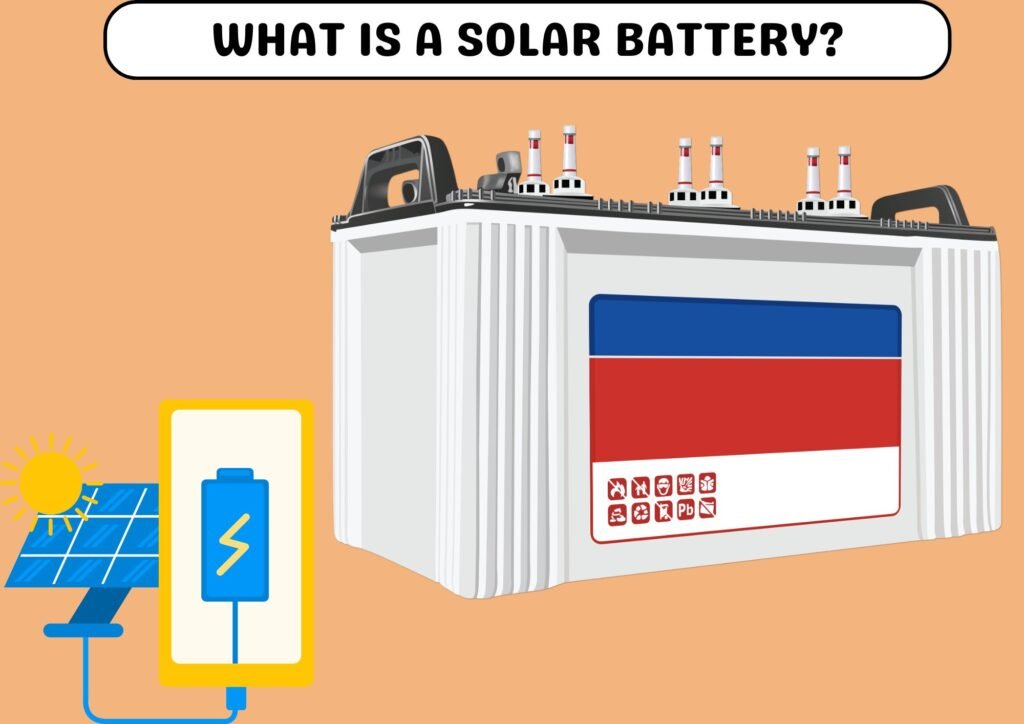
A solar battery is a device that stores the extra electricity your solar panels produce.This stored energy can be tapped into when sunlight isn’t available—like at night, during cloudy weather, or even during unexpected power outages.
🧠 How Do Solar Batteries Work?
Here’s a simplified breakdown of the process:
- Solar Panels Generate Electricity
During daylight, solar panels convert sunlight into direct current (DC) electricity.
- Energy Flows to the Battery
Excess DC electricity is sent to the solar battery for storage.
- Inverter Converts DC to AC
When you need to use the stored energy, an inverter converts the DC electricity into alternating current (AC), which is suitable for household appliances.
- Powering Your Home
The AC electricity is then distributed to power your home, reducing reliance on the grid.
📊 Summary Table: Key Solar Battery Data
| Feature | Details |
| Storage Capacity | 5–15 kWh (kilowatt-hours) |
| Lifespan | 10–15 years |
| Efficiency | 85–95% |
| Cost | $5,000–$15,000 (USD) |
| Warranty | 10 years |
🔍 Types of Solar Batteries
Solar batteries are available in different types, each offering its own unique benefits:
- Lithium-Ion Batterie
Lightweight, efficient, and long-lasting, making them a popular choice.
- Lead-Acid Batterie
Less expensive, but they tend to be heavier and don’t last as long.
- Saltwater Batteries
Environmentally friendly and safe, though less common.
🛠️ Installing a Solar Battery System
Setting up a solar battery system includes several key steps:
- Assessment
Evaluate your energy needs and solar panel output.
- Choosing a Battery
Select a battery type and capacity that suits your requirements.
- Installation
Certified professionals handle the installation of the battery, inverter, and all required wiring to ensure everything runs safely and smoothly.
- Integration
Connect the system to your home’s electrical panel and test functionality.
💡 Real-Life Example
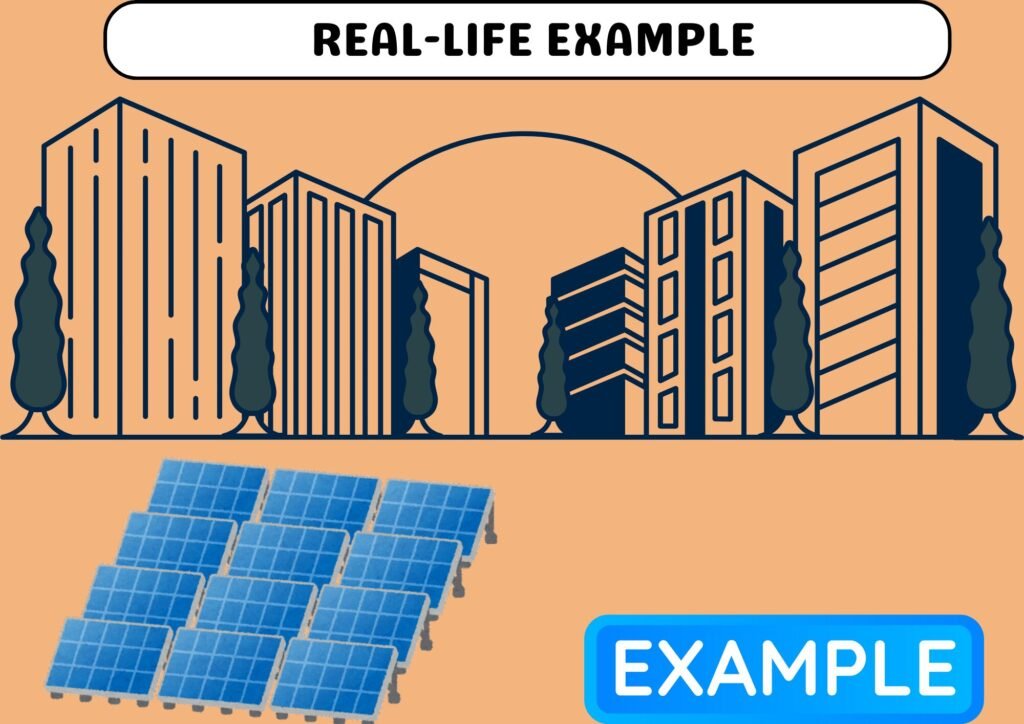
Take the Johnson family from USA, Texas. They installed a 10 kWh lithium-ion solar battery system alongside their rooftop solar panels. Within months, they saw their monthly electricity bill drop by nearly 30%. Over the next five years, the system paid for itself—while also giving them peace of mind during power outages caused by extreme weather, like the 2021 winter storm.
❓ Frequently Asked Questions: How Do Solar Batteries Work?
Q1: Can solar batteries work during a power outage?
Yes, if your system is equipped with an inverter that supports off-grid operation.
Q2: Do solar batteries require maintenance?
Generally, they require minimal maintenance, but it’s advisable to check them periodically.
Q3: Are solar batteries cost-effective?
While the initial investment can be high, they can lead to significant savings on electricity bills over time.
🌟 Final Thoughts
Solar batteries are a smart investment for those looking to maximize their solar energy usage and reduce dependence on the grid. Thanks to ongoing advancements in technology, solar batteries are now more efficient and budget-friendly than ever—making them a practical choice for homeowners across the globe.


